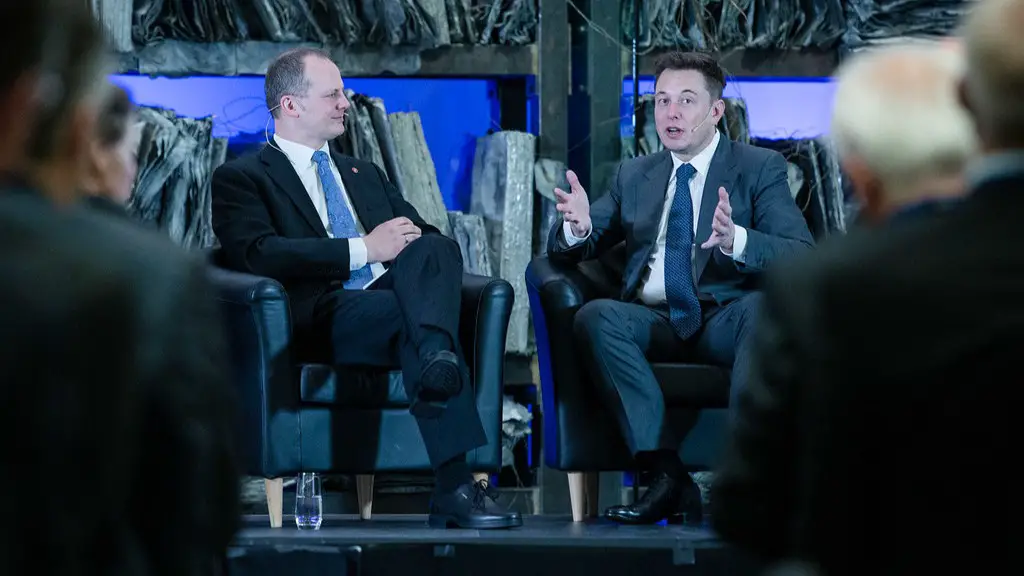Sleep Requirements
Though Elon Musk calls himself a “workaholic,” he is not immune to the biological requirement for sleep. Most adults go through a 90-minute sleep cycle multiple times throughout the night, and each of these cycles is composed of two distinct types of sleep, slow-wave sleep and rapid eye movement (REM). Slow-wave sleep is known to provide the deepest and most restorative rest, while REM is characterized by vivid dreaming and physiological arousal.
The amount of sleep a person needs tends to vary among individuals, and many sources—including the American Academy of Sleep Medicine and the National Sleep Foundation—recommend seven to nine hours of sleep per night for adults. However, research indicates that 10-12 hours of sleep per night may be required for optimal performance, though not everyone can comfortably achieve this amount of rest.
Elon Musk’s Sleeping Habits
According to an interview with The New York Times, Elon Musk typically gets “six hours of sleep a night,” with breaks “every three hours or so” for a snack or a cup of coffee. In this interview, he mentions forgoing sleep for extended periods of time as a “point of pride”—there is a sense that he believes his ability to operate on very little sleep is part of what sets him apart.
However, research indicates that when it comes to sleep therapy, the idea of deprivation-based motivation is counterproductive. In other words, the idea that performance can be improved by depriving oneself of sleep is incorrect. The reality is that lack of sleep impairs cognitive abilities and metabolic functioning, leading to consequences that work against a person’s professional goals.
Consequences of Lack of Sleep
In an article for Harvard Business Review, Arianna Huffington spoke of the detriment to creativity and cognitive performance caused by sleep deprivation. She posits that sleeping less than six hours per night “can not only lead to accidents and poor decision-making, but also, in the long term, to medical problems like obesity and heart disease, loss of libido, and depression.”
Although Elon Musk does not necessarily suffer from any of these extreme health issues, it is likely that his lack of sleep impairs his performance and makes him more prone to mistakes. A study conducted in 2017 involving ten surgeons supports this notion. The study revealed that even partial sleep deprivation led to a significant reduction in surgical skill performance.
Healthy Alternatives to Sleep Deprivation
Regardless of whether or not Elon Musk works in the medical or engineering field, he is likely affected by his sleep deprivation in subtle ways. Fortunately, there are a few measures one can take in order to get adequate rest despite a difficult schedule.
The National Sleep Foundation advocates behind-the-scenes strategies such as limiting the exposure to bright screens before bedtime and regulating the body’s internal clock. Additionally, cutting down on caffeine before bed is vital for creating a conducive sleeping environment. Caffeine can significantly reduce a person’s ability to get to sleep and stay asleep.
Creating an Optimized Sleep Schedule
In order to truly maximize the quality of sleep a person gets, it is important to optimize the sleeping schedule as well. This optimized schedule should be created in cooperation with a doctor to ensure maximum restfulness and safety.
By tailoring the sleep schedule to the individual’s unique health needs, it is possible to create the perfect “sleep architecture,” which includes the duration of the sleep episodes, how much time is devoted to each stage of sleep, and how many hours of sleep should be allotted each night. With the right mix, it is possible to not only increase productivity, but also reduce the long-term effects of sleep deprivation.
Valuing Sleep for Peak Performance
Though Elon Musk may strive to achieve peak performance, he is likely not getting enough sleep to do so. For most people, it is necessary to get at least seven to nine hours of sleep each night, but with an optimized sleep schedule it is possible to achieve those results with fewer than seven hours of rest.
It is important to recognize that getting enough sleep is not a sign of weakness, but rather a necessary part of healthy functioning for peak performance. Though it may be tempting to “power through” with insufficient sleep, this is not a sustainable nor optimal way to perform.
Sleep and Cognitive Performance
Sleep is vital to cognitive performance, yet many people, including Elon Musk, choose to sacrifice it in search of productivity. This habit can be detrimental, as sleep deprivation has been linked to a whole host of detriments to a person’s physical and mental health, such as an increased risk of diabetes, heart disease, and depression, as well as decreased productivity.
Studies conducted on college students, military personnel, and medical professionals suggest that as few as six hours of sleep per night can lead to decreased cognitive performance. While getting sufficient sleep can be difficult for many, it is worth the effort, as sleep is foundational for health, learning, creativity, and peak performance.
Memory and Sleep
In addition to cognitive performance, the impact of sleep on memory has been studied thoroughly. Sleep is important for memory in two ways. First, it helps with forming new memories. Generally, the first night of sleep following the learning of a new task helps to encode that experience into long-term memory, which supports an individual’s ability to recall that information in the future.
Second, better sleep quality encourages more efficient memory recall. Research has indicated that people can better recall information if they have had an uninterrupted night of restful sleep. Sleep deprivation has a negative effect on this process, as one’s ability to access information quickly and accurately is impaired.
Conclusion
In conclusion, research has consistently indicated that getting the necessary amount of sleep—seven to nine hours per night—is necessary for peak performance and optimal health. Elon Musk may be proud of his ability to function on just six hours of sleep, but he may be unknowingly hindering his own performance.
Though creating an optimized sleeping schedule can help, sleep deprivation can be long-term in its effects. Therefore, it is important for individuals such as Elon Musk to prioritize getting enough restful sleep on a nightly basis in order to enable peak performance, healthy functioning, and memory formation and recall.

